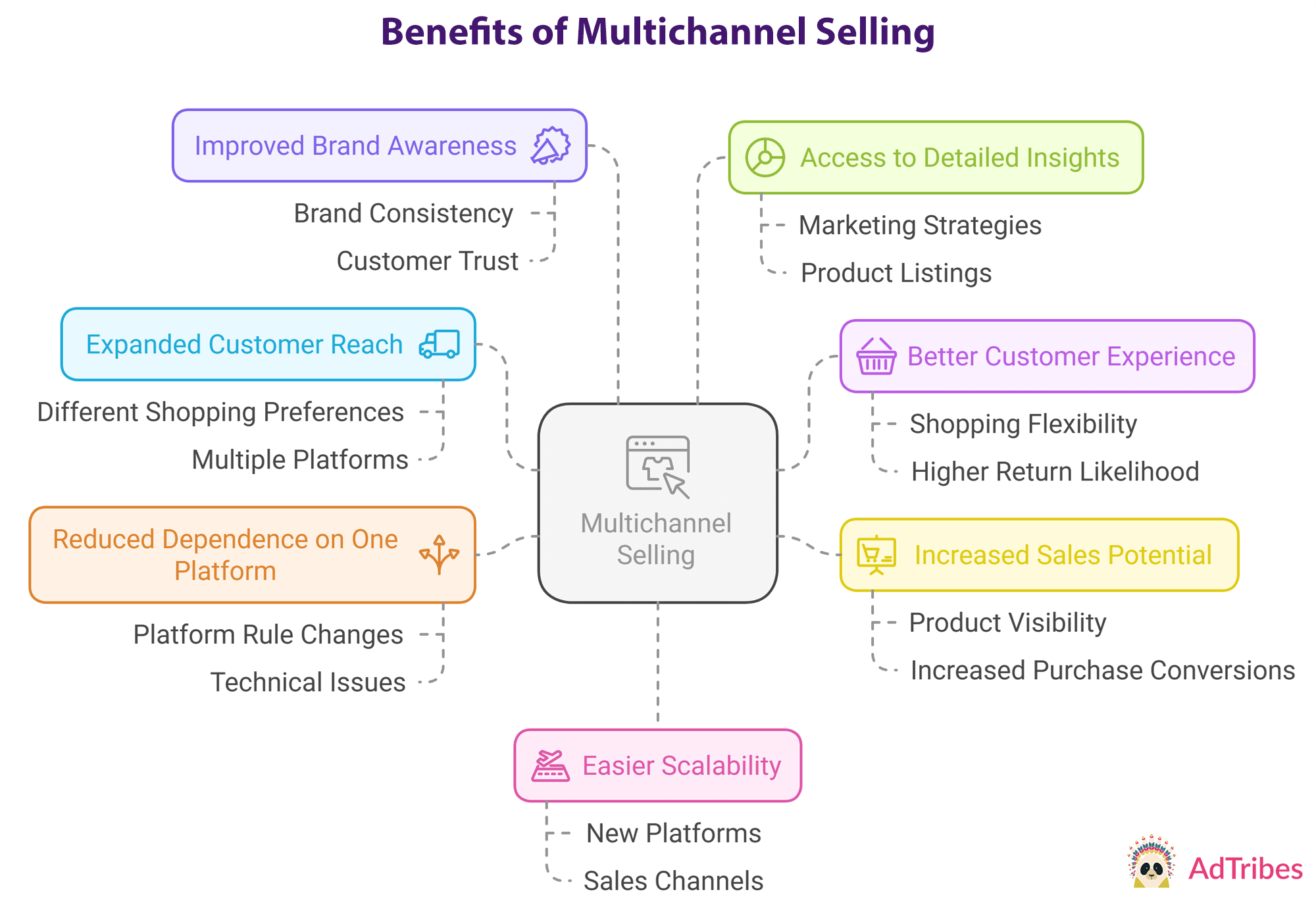Complete Guide of How to Create an E-Commerce Website Like Amazon for your business
In this article, we will show you How to Create an E-Commerce Website Like Amazon for your business. Websites similar to amazon are not hard to make, all you need is just the right outsourcing team.
- By
- 900 views
- 0 reply
TABLE OF CONTENTS
"I Knew My Store Could Do Better...
But I Didn't Know How"
That's what one of our clients, Jessica, told us. She was running a small mug store on WooCommerce—sales were okay, but stuck.
Until she discovered personalization.
Until she discovered Cmsmart.
Fast-forward 30 days:
- ✅ Her store was redesigned with AI product options
- ✅ Customers could design their own mugs with 3D preview
- ✅ AOV jumped by 42% — and she finally felt in control
Want to learn how she did it (and how you can too)?
🎓 Join our FREE 30-Day Email Course:
"Personalize, Launch & Scale – The Smart Ecommerce Way"
You'll get:
- ✔ 1 lesson a day, straight to your inbox
- ✔ Real store examples, demos & playbooks
- ✔ No tech jargon. Just strategy that works.
Join thousands of store owners learning how to scale smarter.
🎉 You're In! Thank You!
We've received your information and you're now part of our smart ecommerce journey.
Please check your inbox – your first email from the 30-Day Course is on its way!
📩 Didn't see it? Check your spam or promotions tab and mark us as safe.
We're excited to help you personalize, launch, and scale your store – the smart way.
TABLE OF CONTENTS
Related Post
Imagine a world where your products are just a click away for customers, regardless of where they choose to shop. According to a recent report by Statista, a staggering...
Imagine doubling your conversion rates simply by understanding and implementing the latest trends in eCommerce - sounds exciting, right? In a 2022 report, it was highlighted that the global...
Understanding Your Target Audience Who Is This Tutorial For? Whether you’re a custom bag entrepreneur, a merchandising manager, or a WooCommerce developer setting up stores for your clients, this guide is...
Other Usefull Contents
You can see many success stories from our customers, and you may be one of them in the future












It's difficult to recall a period when Amazon wasn't the dominant force in the ecommerce sector. The giant has evolved into one of the world's largest enterprises, acquiring corporations and developing and marketing its own goods such as Alexa and Kindle devices, not to mention their very popular television streaming arm, Amazon Studios. Amazon's extraordinary corporate strength stemmed from a deliberate, clever approach to involve the entire world. Its rise may be traced back to a perfect ecommerce growth plan.
Amazon's yearly revenue was projected to be $232,887 million US in 2018, a huge increase from $8490 million US in 2005. The company's twenty-five-year existence has been nothing short of spectacular. Amazon sells everything from drones to t-shirts to pet supplies to books. To handle this huge inventory, even though third-party sellers take up much of the space these days, Amazon employs 646,500 people as of the end of 2018, making them the world's largest technology employer, according to Statista.
Amazon's influence is so strong that in 2017, the firm started a nationwide campaign in the United States to persuade towns to apply to become Amazon's second headquarters location. According to NPR, the new site would necessitate a $5 billion US investment by Amazon and the creation of 25,000 employees, with an average pay of $150,000 US. Cities throughout the country touted their benefits in a bid to entice Amazon. The corporation's presence in the community would have a significant positive impact on the local economy. In the end, Virginia, which is close to the capital, D.C., triumphed.
According to Bloomberg, Amazon is the world's largest provider of cloud-based services, and while the company is prepared to dramatically expand overseas, it will face competition from comparable ecommerce behemoths such as AliExpress, a subsidiary of China's superpower Alibaba. However, for a firm that has been consistently profitable and rapidly expanding, an entire worldwide presence appears to be unavoidable. Now is the right time to follow amazon ecommerce platform to get your key to success. In this article, we will show you How to Create an E-Commerce Website Like Amazon for your business. Websites similar to amazon are not hard to make, all you need is just the right outsourcing team.
1. What features made Amazon So Successful?
Amazon defines innovation as continually reinventing oneself. While Amazon's effort to join the jewelry market failed in 2005, the prime service was a real success story that continues to have a huge impact on all of Amazon's products and services today. The next major thing came in 2007: the Kindle e-book reader was released and quickly sold out globally. Many additional inventions followed, including Amazon Robotics, Amazon Web Services (AWS), Prime Air, Amazon Go, Amazon Pantry, Amazon Echo, Amazon Dash, and many of Amazon's own trademarks.
Amazon, with approximately 560,000 employees, is one of the world's greatest employers, employing three times as many people as Google, Facebook, and Alibaba combined. The combination of a wide choice of items, first-rate service, and the "Customer First" concept has resulted in a one-of-a-kind system that redefines the retail sector. Many platform users (particularly prime members) do not necessarily buy anything on Amazon because they need it quickly, but rather because it is just enjoyable and easy to accomplish.
When Amazon first launched in 1995, it simply sold books. Within a month of its founding, the business had sent books to over 40 different nations. Amazon has since grown to become one of the world's largest e-commerce firms, accounting for around 44 percent of all e-commerce sales in the United States in 2017. So, how did Amazon achieve such extraordinary results? Let's take a look at seven reasons why Amazon is doing so well.
One-click ordering
Features such as Amazon's "1-Click" ordering button are game changers in online commerce, greatly increasing its user-friendliness. Customers submit their billing, shipping, and payment information only once and then place their order by clicking a single button. This one button replaces a number of activities such as payment and shipment. After the "1-Click" button is clicked, the system waits 30 minutes before allowing clients to continue shopping and add more products.
Personalized recommendations
Because of the variety of items available, an advanced search tool is a requirement for online marketplaces like Amazon. Employs a searching algorithm called A9 to assist consumers locate the needed items from 12 million listings. This algorithm organizes the products based on numerous factors of the customer's behavior.
Convenient payment
Reduce checkout abandonment by making it incredibly simple to complete the required processes. This includes the following recommended practices. Reduce the number of needed fields, make clear and visible CTAs, display payment security evidence, and offer no-sign up payment. Of course, payment choices must be diverse. Many marketplaces make the huge error of just accepting PayPal. Instead, you should consider the payment preferences of certain regions.
User-Friendly Design
Websites similar to amazon are having user experience and customer experience are inextricably intertwined. The one-click ordering and different ways to order have greatly decreased the friction for the client. However, their interface work is better viewed as utilitarian. In certain cases, their mobile design is superior to their desktop design. In other places, such as customer service sections, they suffer from aged and dusty interface design that is left in place while more 'visible' portions are continually renewed.
In many respects, their interface has developed from a specific space in order to better deliver on performance. It is a clear example of how slow growth may lead to a good solution while also highlighting the problems with being overly data dependent and focusing on tiny portions of the problem.
Shopping cart
Include a wishlist as a vital marketplace feature that encourages user involvement and purchases. This is a wishlist that allows consumers to save the items they want and share them with their friends and family.
Advanced product search
Because of the variety of items available, an advanced search tool is a requirement for online marketplaces. Sites like amazon, employ a searching algorithm called A9 to assist consumers locate the needed items from 12 million listings. This algorithm organizes the products based on numerous factors of the customer's behavior.
Registration and user profiles
In a marketplace, there are two fundamental user roles: buyers and sellers. As a result, your marketplace website will require these two sorts of profiles, where consumers will input the required information and update it as needed. This is the feature that you need to have if you want an amazon ecommerce platform.
Typically, buyers are requested for their names, email addresses, and passwords. They require the ability to add a delivery address or a payment method. Their accounts also include features such as an easily accessible order history and wishlist.
Sellers must give information such as firm names, addresses, phone numbers, tax information, and so on. They must be able to change numerous information, including their account preferences and payment methods.
Switching profile types
In response to the question, "How do you create an ecommerce website like Amazon?" The following feature is highly desirable, but it is unlikely to be a must-have. Within the same user account, this functionality permits purchasers to become sellers. This is really useful when they wish to go from purchasing to selling and vice versa. It takes time to log in and out every time.
Homepage
Customers should be able to see a clear navigation system, product filters (by geography, price range, or other variables), appropriate product suggestions based on their viewing or purchase history, a section of recently seen or popular items, and so on from the marketplace homepage.
Product pages
Sellers on your marketplace must be able to quickly generate and manage new items. They should offer as much information as feasible (description, price, high-quality photos, availability, warranty, delivery info, etc.) Good descriptions assist customers in making selections and are also beneficial to SEO. You may utilize features like autocomplete forms, error corrections, category recommendation, and so on to encourage sellers to input as many details as possible while still making the process easier.
Product images
Amazon enforces a few picture criteria to make product photos more informational and useful for increasing sales. Images, for example, should occupy 85 percent of the frame, have adequate size (measured in pixels), be shown against a white backdrop color, and utilize only the specified formats (JPEG, PNG, GIF, or TIFF). You will also need to use image optimization techniques to ensure that all submitted pictures look uniform and do not slow down the website. Shopping websites like amazon frequently utilize a photo slider to display the product with all of its details.
Product videos
E-commerce product videos may display items from a variety of perspectives, making them a popular lead generating strategy today. So offering a video option for your suppliers is one of the answers to the issue of how to develop a site like Amazon.
Shipping options
Your marketplace consumers may use the shipping function to select the best delivery option provided by the sellers. Vendors on Amazon can opt to ship it directly or utilize Fulfillment by Amazon. Shipping information, such as shipping zones, can also be adjusted by vendors. View more: Five Shipping Costs Strategies To Keep Customers Happy While Protecting Profits
Order reports
Sellers should be able to access order reports on the reporting page (fulfillment status, sales channel, item details, and more). They may see both FBA orders (Fulfillment By Amazon, or the services of storage, packing, and shipping help) and orders completed by themselves on Amazon.
2. Core Features of an Ecommerce Website Like Amazon
2.1 Features For Sellers:
Login and Sign Up
Every new member who wishes to sell their items on Amazon must supply Amazon with information such as their name, company address, payment information, and tax information. Information on the items that the company intends to offer on the platform is also necessary.
Listings
Sellers must be able to upload their items and make listings after opening a business account. Sellers should be able to create, maintain, and update product pages at this stage. Users can then browse through these listings to make purchases.
Notifications
Notifications enable consumers to get all relevant news and updates regarding their accounts and the service as a whole. Businesses, for example, may receive updates about orders, listings, and offers from Amazon. Sellers will be contacted in the event of refund requests, claims, or other emergency situations. In general, Amazon notifies its users of any changes to its services or account activity.
Payment System
A payment system for sellers should have features such as a display of all transactions, charge and credit reviews, modifications, purchase history, and refund information.
Shipping Management
Sellers can select the methods they want to use to transport their items. Sellers on Amazon have two options: they may ship goods directly or utilize the Fulfillment by Amazon function. View more: How To Customize Calculate Shipping Cost Extension On Magento Multi Vendor Marketplace Theme Package?
Order Management
The order management function enables merchants to operate more efficiently with product orders. This tool enables businesses to print order packing slips, add product order IDs, and check shipment data. This page can also be used when a seller wishes to contact a buyer.
Ratings and Reviews
This tool allows sellers to monitor buyers' comments, answer queries, and check their ratings. Sellers on Amazon may also use this tool to contact purchasers in order to reply to criticism or request that erroneous reviews be removed.
Reports
The report function allows merchants to review customer reports, examine the specifics of each report, and sort them by order date. The seller may examine order report data such as order status and fulfillment status, information regarding sales channels, and product specifics on this page.
2.2 Features For Buyers:
Login and Sign Up
Buyer registration is a lot simpler procedure than seller registration. Customers only need to submit their names, email addresses, and passwords during the registration process. Any more information, such as addresses and payment details, is only necessary if the customers are ready to purchase anything.
Payment System
Buyers should be able to pay for their purchases in a simple manner. PayPal, Braintree, Stripe, MANGOPAY, Adyen, and Dwolla are just a few of the marketplace payment options that serve to give consumers a safe and simple purchase experience. Amazon, on the other hand, utilizes its own online payment processing service, Amazon Pay. If you are looking for a service to develop this feature, please consult to ECOMMERCE WEBSITE DEVELOPMENT
Shipping Management
Buyers may monitor their shipments on Amazon by going to the "Your Orders" tab. This tool allows customers to monitor orders, view delivery timelines, and receive full information about delivery choices and the actual location of any of their shipments. Consults: Five Shipping Costs Strategies To Keep Customers Happy While Protecting Profits
Buying Management
At Amazon, the purchasing management system includes various choices, including one-click ordering ("Buy Now" button) and purchasing products by adding them to a shopping cart. Customers can also cancel a delivery using the Amazon web app. It is possible to cancel orders that have not yet been sent, as well as to refuse to accept or cancel orders that have already been shipped.
Messaging
Customers may use the Messaging system to contact sellers to learn more about the product or to ask any other related inquiries. This functionality may also be used to facilitate communication among purchasers; for example, the buyer can ask questions about a product to others who have previously purchased it.
Ratings and Reviews
The review and rating system is a standard element of most online marketplaces. Buyers should be allowed to provide evaluations on purchased products to assist others in deciding what to buy. The grading system also assists businesses in gaining trust and attracting more customers to their services.
Notifications
Buyers, like sellers, can get service notifications. These alerts are connected to the customers' orders, shipment statuses, and payments on Amazon.
Customer Support
Both buyers and sellers will benefit from the support function, which allows customers to register complaints, ask questions, and contact website personnel. Amazon's support page includes a collection of the most commonly asked questions (FAQ) and their solutions. If a user is unable to fix their difficulties on the platform, they can contact a support staff by email, phone, or chat.
Wishlist
Buyers may use the wishlist function to build lists of goods they want to purchase later. This feature displays information about all wishlist items, allowing consumers to modify item quantities or delete items. Buyers can also check the order subtotal and proceed to checkout from this page. View more: How To Configure Wishlist Plugin For Multistore?
Disputes
Buyers can use this tool to dispute the services provided by vendors. Such conflicts may develop, for example, when a customer does not get ordered items.
3. How to make websites similar to amazon: Main steps
3.1. Prepare the spec of your future project
A good specification explains the tasks you expect your team to do. It must also give explicit instructions on what they should accomplish. If the specification is well-written, it will serve as the source for process timings.
3.2. Create wireframes and website design
If you want to create a website like Amazon, its design should be appealing, user-friendly, and able to attract new clients. So How To Design An E-Commerce Website Make Happy Customers?
3.3. Compose the list of necessary features
Before you begin developing the web app, you should identify all of the needs and features of the future e-commerce platform. Some of these were mentioned before in the essay. Amazon ecommerce platform has many highlight features that you need to learn about.
3.4. Choose the right technologies
Following the creation of a list of needed features, it is time to select the appropriate technological stack. It is determined by factors such as money, timescale, and complexity.
3.5. Hire professional developers
The key to successful products is a devoted team of developers. If you require specialists to bring your concept to life, please contact us at CMSmart.net for information. Click here to view Top Ecommerce Agencies
3.6. Provide the website security
Users must divulge personal information. As a result, you must ensure that the website is secure and that people's data is secured. Amazon ecommerce platform alway provides website security.
3.7. Build your MVP
The most challenging step is development. MVP development entails both frontend and backend development utilizing a variety of technologies.
3.8. Don’t forget about testing
The e-commerce website similar to amazon must be free of bugs. As a result, you must do testing prior to launch. Testing done by QA engineers is required. Aside from that, A/B testing is required.
3.9. Launch and support
You must realize that your app's target audience consists of both merchants and purchasers. As a result, promotion should target both groups. An internet advertisement is the most convenient method. However, the methods for attracting individuals may differ. For example, you might provide discounts or membership benefits to the first 1000 users.
4. How much will it cost to build a website like Amazon?
Let us first distinguish between two concepts: Amazon Brand and Amazon Technology. In the first sense, the Brand is the value to Amazon, which you are not attempting to price, and which most people have bundled into the alleged cost of creating a website like Amazon.
The second point, technology, is where I think you want to stay. Amazon has an astonishing amount of technology wrapped up not just in their online services and sales of things (products, reviews, price, video, games, and so on), but also in their warehouse and distribution operations, which are worth billions of dollars on their own. But you're not going to start there.
As a starting point, you are requesting a multi-vendor marketplace like Amazon. I'm assuming you won't be selling original TV shows and videos, as well as many of the additional "additions" on Amazon that make it difficult to reproduce. Instead, you will concentrate on selling products, introducing new vendors and assisting them in listing their products, and simplifying the consumer shopping experience.
This requires the establishment of a marketplace-style eCommerce website. You require a streamlined checkout, the storage of clients' payment and shipping information, the sending of a variety of transactional emails, event-driven emails, mobile apps, and suggestions. These features come at a cost, but it won't be in the billions under a new brand.
The cost of developing a website similar to Amazon may vary depending on the amount of work, technological complexity, and location. However, in certain nations, the cost of developing a web infrastructure remains low. Eastern Europe ($25 to $50/hour), Latin America ($10 to $25/hour), and Asia (from $25/hour) are examples of such locations.
MVP development typically takes 3 to 6 months:
400-800 hours of project management.
430-830 hours for business analysis.
1200-1600 hours for UX/UI design
500-1200 hours for quality assurance
1200-2500 hours for frontend development
1900-3100 hours for backend development
As a result, a modest and basic bespoke MVP will cost between $20.000 and $30.000 and will have the following must-have features:
Including a nice feature (for sellers)
Search and purchase functionality (for buyers)
Admin Control Panel (for admins)
Integration of the payment system Messaging system (for buyers and sellers)
Final Thoughts
Every day, people ask themselves, "How much does it cost to make a site like amazon?" We can hypothesize, but it ultimately presupposes that websites are separate objects with beginnings and endings, similar to organizing a stack of business cards. The fact is that websites are meant to be online marketing centres, using the internet to sell and promote a business through content, SEO, design, UX/UI (ease of use), giveaways, SEO may be programmed into pictures, links, and a variety of other variables. With the emergence of DIY automatic fill-in-the-blank template builder services like Wix, Weebly, Squarespace, and now WordPress, website creation has been so devalued that websites are now viewed as items rather than a form of marketing. This type of paralogia explains why, in 2018, most websites have no SEO and do little to develop a business.
As a result, many start-ups fail because they do not focus on SEO, marketing, and creating a flawless website like Amazon. To accomplish so, you'll need a reputable outsourcing firm, such as CMSmart.net, to assist you with site development. Choosing the right outsource is really important when you seek to build an ecommerce site like amazon, and look at “how much” a website like amazon might possibly have cost.
As a result, building an Amazon e-commerce website from scratch is a difficult process. You will need to invest a lot of money and time in developing your website and making it stand out. Nonetheless, the proper strategy is always preferable than rash measures that result in failures and ineffective expenses. Furthermore, Amazon began about 25 years ago, so building a similar enterprise and replicating its success will be difficult. However, this essay addresses the most often asked issues regarding creating a website similar to Amazon. Do you still have questions about how to create a website like amazon? Please contact CMSmart for further information.
View more: How To Build A Website Like EBAY? Time And Cost In 2021?